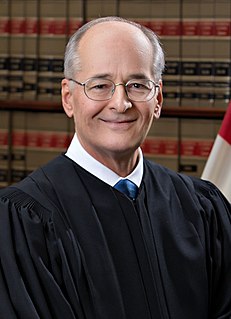A Quote by Caroline Fraser
Americans are squeamish about anything that seems to punish people for their religious beliefs.
Quote Topics
Related Quotes
An interesting thing about the religious people who run Iran is that one of their problems with Ahmadinejad, who they thought would be one of their guys because he's so religious, is that he actually has some really nutty ideas about religion. He's too religious. He's too literal. I mean, there are plenty of people in Iran who like Ahmadinejad's religious beliefs, just as there are plenty of Christian fundamentalists in America who like George W. Bush's beliefs. But there are also plenty of people who are very uncomfortable with his overt religiosity.
I used to be squeamish a long time ago and I guess, secretly squeamish, no... but I have a huge respect for the human body and what we do and so I think it's a massive privilage for people to let you operate on them. And I used to be very "OOOH GOSH! THIS IS BAD!" but to see people bleeding and suffering is bad and I will never get over that, but being able to do something about it, means that you're no longer squeamish.
There is a place in this world for satire, but there is a time when satire ends and intolerance and bigotry towards religious beliefs of others begins. Religious beliefs are sacred to people and at all times should be respected and honored. As a civil rights activist of the past 40 years, I cannot support a show that disrespects those beliefs and practices.
All my life I have made it a rule never to permit a religious man or woman take for granted that his or her religious beliefs deserved more consideration than non-religious beliefs or anti-religious ones. I never agree with that foolish statement that I ought to respect the views of others when I believe them to be wrong.
You are American, whether you profess Judaism, Catholicism, Protestantism, whether you adhere to Islam, or whether you believe in nothing at all. And you're as American as anybody else, whatever your religious beliefs. But try not to get caught up in media stereotypes of your neighbors and of your country. Think about people that you know and how they treat you. As you get to know someone, it matters not what religious background they have, or what their nationality is, or where they came from. And I think that's how Americans really do relate to each other on a personal level.
A whole lot of us go through life assuming that we are basically right, basically all the time, about basically everything: about our political and intellectual convictions, our religious and moral beliefs, our assessments of other people, our memories, our grasp of facts. As absurd as it sounds when we stop to think about it, our steady state seems to be one of unconsciously assuming that we are very close to omniscient.






































